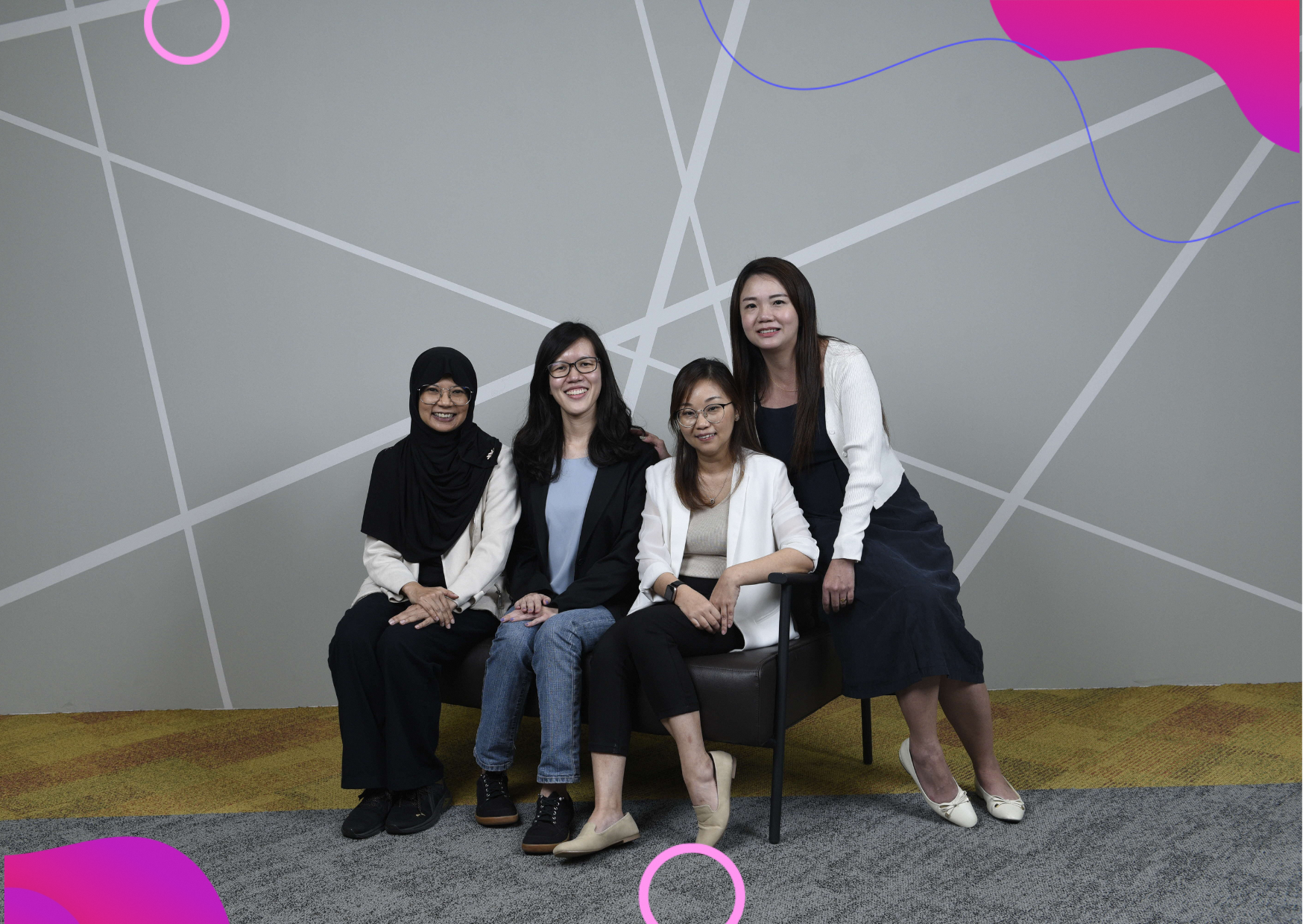IRAS. Moving fast with agile projects.
What you need to know about Donation-API (DON-API)
Previously, IPCs submitted these donation records to IRAS using offline applications. The downside of using these applications is that the process is time-consuming, and prone to errors.
The team: Making tax submission simple for IPCs
The project took exactly 3 years 9 months to complete from ideation to streamlining the submission process and the full launch of the DON-API in January 2024. Following partnership outreach efforts with the Ministry of Culture, Community and Youth and the National Council of Social Service, 85 per cent of IPCs have successfully onboarded DON-API-ready software. The remaining IPCs are expected to hop on board DON-API in 2025.
Let’s hear it from the all-gals team from IRAS who worked tirelessly to bring DON-API to fruition.
 Team members: (from left to right) Adelena Binte Juma'at, Manager; Loh Kia Ngee, Senior Assistant Director; Tay Huey Weng, Senior Manager; Chia Gek Leng, Manager; and (not in photo) Shen Wan 'E, Manager.
Team members: (from left to right) Adelena Binte Juma'at, Manager; Loh Kia Ngee, Senior Assistant Director; Tay Huey Weng, Senior Manager; Chia Gek Leng, Manager; and (not in photo) Shen Wan 'E, Manager.
What sparked the idea of creating a DON-API?
Project team: Using the offline applications to make submissions was resource and time-intensive for both the IPCs and IRAS. In our search for a better way of enabling IPCs to fulfil their filing obligations, API stood out as a solution that could integrate seamlessly with IPCs’ existing software.
An API offered capabilities such as upfront validations that addressed the existing pain points of IPCs and IRAS. It was also in line with IRAS’ goal to digitalise with our taxpayers and wider ecosystem, by promoting the use of seamless filing software.
In three sentences, what sums up the benefits of DON-API?
Project team: Faster submissions – DON-API cuts down the submission time for IPCs to just five minutes!
Easier submissions – DON-API lets IPCs meet their filing obligations to IRAS directly and seamlessly from their software.
Simpler submissions – DON-API supports upfront validation to detect and reduce erroneous submissions, and offers added functionalities such as amendments.
What challenges did the team face during the project?
Project team: It was not easy as we recognised that it was a massive change for the IPCs and their digital service providers. Therefore, a lot of planning and effort went into change management and collaborating closely with the IPCs to ensure they can successfully transit to use DON-API. We had to work closely with nearly 20 digital service providers to offer 26 DON-API ready software. We also worked directly with more than 720 IPCs to support their transition process from using the offline applications to DON-API.
All our hard work was worth it as majority of the IPCs have provided positive reviews after using DON-API, attesting that it was successful in making submissions easier for the IPCs. With upfront validations, DON-API has also cut down erroneous submissions from IPCs by more than 70 per cent. This also reduced the resources expended by IRAS to review rejected submissions.
We would like to thank the solution providers and IPCs for the strong partnership and collaboration to make this possible!
What were some memorable takeaways for the team?
Project team: Candid feedback from the IPCs allowed us to understand the specific needs of the charity industry and tailor the transition plans for them.
We engaged directly with IPC representatives through seminars, hands-on workshops, and small group Q&A sessions. It had been really rewarding and encouraging to witness first-hand the IPCs’ openness and willingness – to collaborate with us as part of the DON-API project to undergo this major change to their operations and submission processes.
While those platforms were organised for us to share with about DON-API and help them through their transition to use DON-API, they also became valuable learning opportunities for us.


